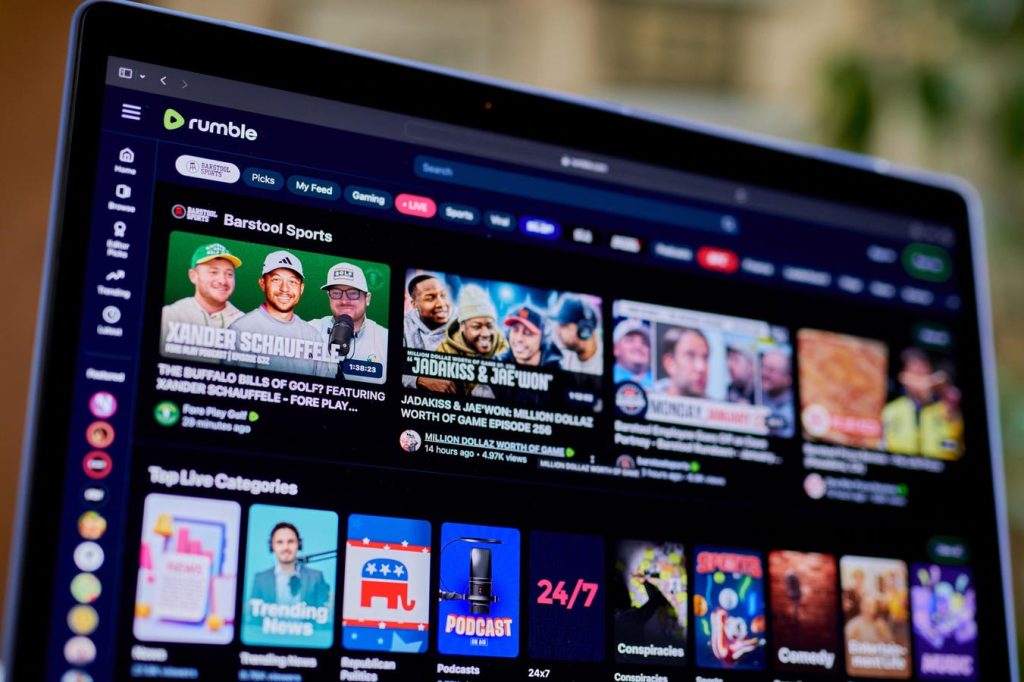Rumble’s High-Stakes Gamble: A Right-Wing Media Empire or a Dot-Com Bust?
Rumble, the self-proclaimed "free speech" video platform, has experienced a meteoric rise in recent years, positioning itself as a conservative alternative to YouTube. Boasting a surge in users during the 2024 election cycle and a growing roster of high-profile right-wing personalities, Rumble CEO Chris Pavlovski declared the dawn of a new media era. However, beneath the veneer of success lies a precarious financial situation. As 2025 unfolds, Rumble faces a critical juncture: will it solidify its position as a major player in the online video landscape or succumb to the same fate as other right-wing media ventures that failed to achieve sustained profitability?
Rumble’s trajectory has been closely intertwined with the rise of anti-"woke" sentiment and the perceived censorship of conservative voices on mainstream platforms. Capitalizing on this discontent, Rumble attracted a significant user base during the COVID-19 pandemic and the subsequent 2020 election, offering a haven for those seeking unfettered expression. This growth was further fueled by the platform’s aggressive recruitment of controversial conservative figures, including Donald Trump Jr., Kimberly Guilfoyle, and Scott Adams. These personalities, coupled with existing content creators and a partnership with Barstool Sports, aimed to diversify Rumble’s offerings and broaden its appeal.
Despite the influx of high-profile creators and a surge in users, Rumble has struggled to translate its popularity into financial stability. The company’s ambitious expansion, including the development of a cloud services platform, an independent ad marketplace, and the acquisition of podcasting platform Callin, has resulted in significant financial outlays. While revenues have increased, they have failed to keep pace with soaring costs, leading to substantial losses. Rumble’s cash reserves, largely stemming from a 2022 SPAC merger, are dwindling rapidly, putting immense pressure on the company to achieve profitability in the near future.
Adding to Rumble’s challenges is its dependence on a relatively narrow, albeit dedicated, user base. While the platform has achieved notable viewership numbers during specific events, such as the 2024 election, its overall reach pales in comparison to giants like YouTube and Twitch. This limited audience restricts Rumble’s advertising potential and hinders its ability to attract mainstream advertisers, further exacerbating its financial woes. Moreover, user engagement has declined since its peak in late 2022, raising concerns about the platform’s long-term viability.
Rumble’s future is further complicated by its ongoing legal battles. The company has filed lawsuits against Google, alleging anti-competitive practices, and against the state of California, challenging a new content moderation law. The outcome of these legal challenges could have significant implications for Rumble’s operations and financial stability. While Pavlovski remains optimistic about Rumble’s prospects, citing the "innate human desire for self-expression," the company’s financial vulnerabilities and legal entanglements cast a shadow over its future.
The company’s close ties to prominent figures in the Trump administration, including Vice President JD Vance, Commerce Secretary nominee Howard Lutnick, and White House appointee David Sacks, have fueled speculation about potential political influence and its impact on Rumble’s trajectory. While these connections have generated positive market sentiment and contributed to stock price increases, they also raise questions about the company’s independence and potential conflicts of interest. Whether these political ties will ultimately prove beneficial or detrimental to Rumble’s long-term success remains to be seen.
As 2025 progresses, Rumble faces a crucial test. The company must demonstrate its ability to translate its user base and political connections into sustainable profitability. Failure to do so could result in a rapid depletion of its remaining cash reserves, potentially leading to a similar fate as other right-wing media ventures that have struggled to gain traction in the competitive online landscape. Whether Rumble can defy the odds and establish itself as a viable alternative to mainstream platforms or become another cautionary tale remains a question that will be answered in the coming months.






